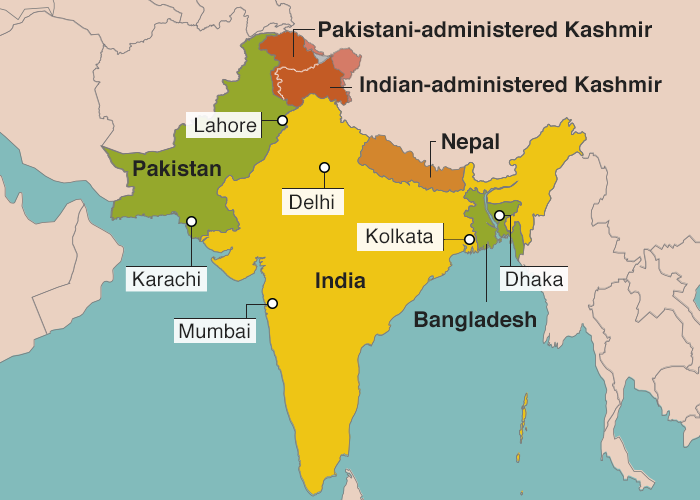September 06, 2019

Khamenehi did not condemn the Indian federal government’s action against Kashmir, as has much of the rest of the world, but only asked it to be gentle.
He also blamed the troubles in Kashmir on “malicious measures” by Britain when it left the Indian subcontinent seven decades ago.
Kashmir was a Muslim-majority region with a Hindu ruler. Kashmir joined India but was given special status in India’s constitution because of its Muslim majority. On August 5, Indian Prime Minister Narendra Modi revoked that special status and began to rule the area directly from New Delhi.
Most of the world reacted negatively. Iran stood mute, however. It has done the same thing about the treatment of China’s Uighur Muslim minority, tens of thousands of whom have been forced into re-education camps.
The Islamic Republic also stood mute in the face of Myanmar’s repression of its Rohingya Muslim minority—until Myanmar patched up its relations with the United States a decade ago. After that, Iran strongly defended the Ro-hingya.
Many clerics in Iran have not been happy that the regime has muted its defense of Muslims when it has sought good relations with the governments repressing them. It appears these clerics may have gotten through finally to Khamenehi.
On August 21, 16 days after India clamped down on Kashmir, Khamenehi spoke very carefully about the events in Kashmir.
“We maintain good relations with the Indian government,” he began, “but the Indian government is expected to adopt a fair policy toward the decent people of Kashmir so that the Muslim people of the region are not put under pressure.”
He then blamed Britain for the long spat between Pakistan and India over Kashmir. “To prolong the conflict in Kashmir, the British intentionally left this [open] wound,” he said, without explaining how Britain could be doing so 72 years after withdrawing from the subcontinent.
Khamenehi spoke a few days after Grand Ayatollah Lotfollah Safi Golpayegani spoke out against India. “What sins have the innocent and oppressed people of Kashmir committed to deserve the harshest oppression and cruelty by India’s military forces?” he asked on August 17.
The previous day, Hojat-oleslam Kazem Sediqi also criticized India in his sermon at Tehran Friday prayers.
The regime may feel more at ease in criticizing India given that India has stopped all purchases of Iranian crude oil in the face of US sanctions.
